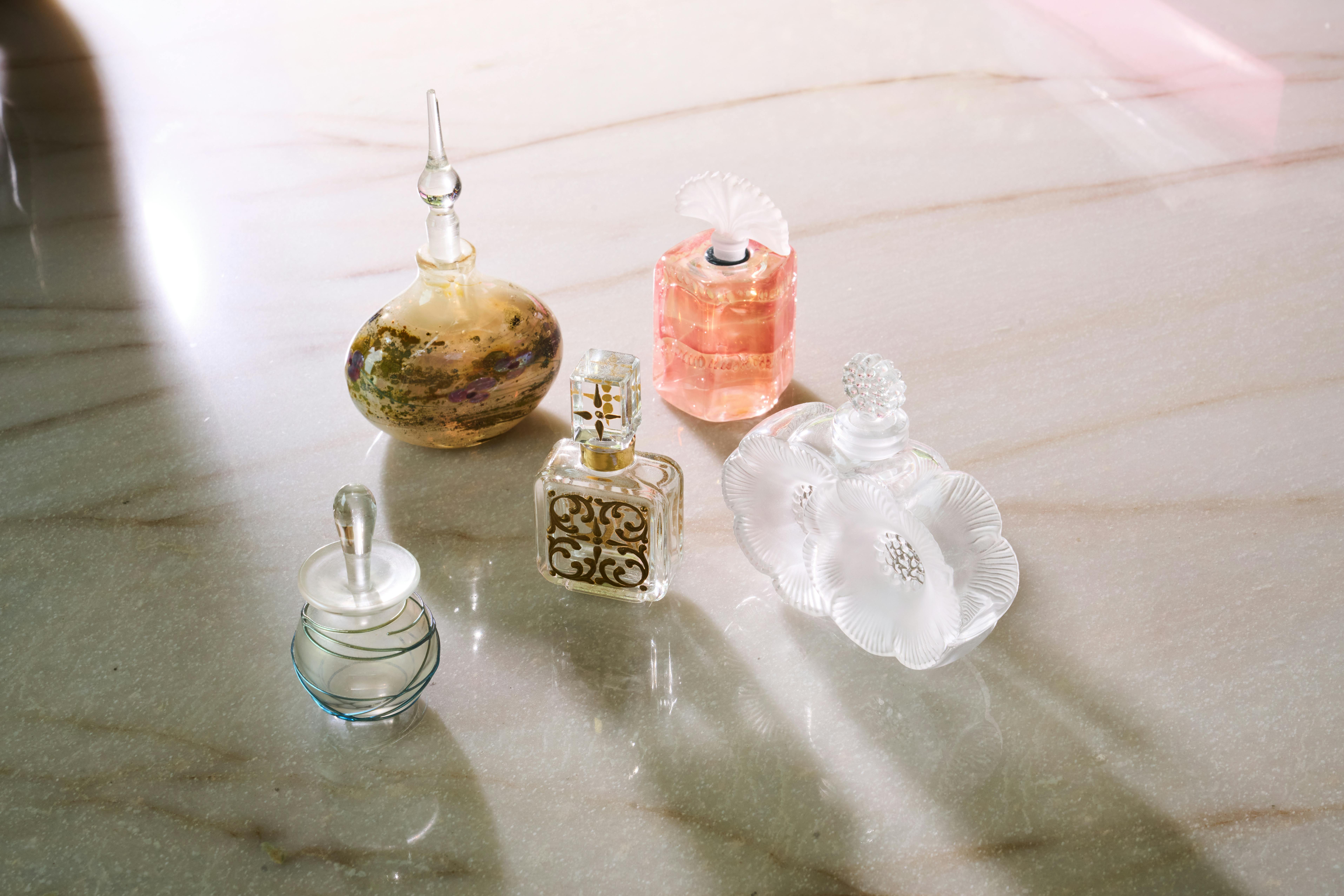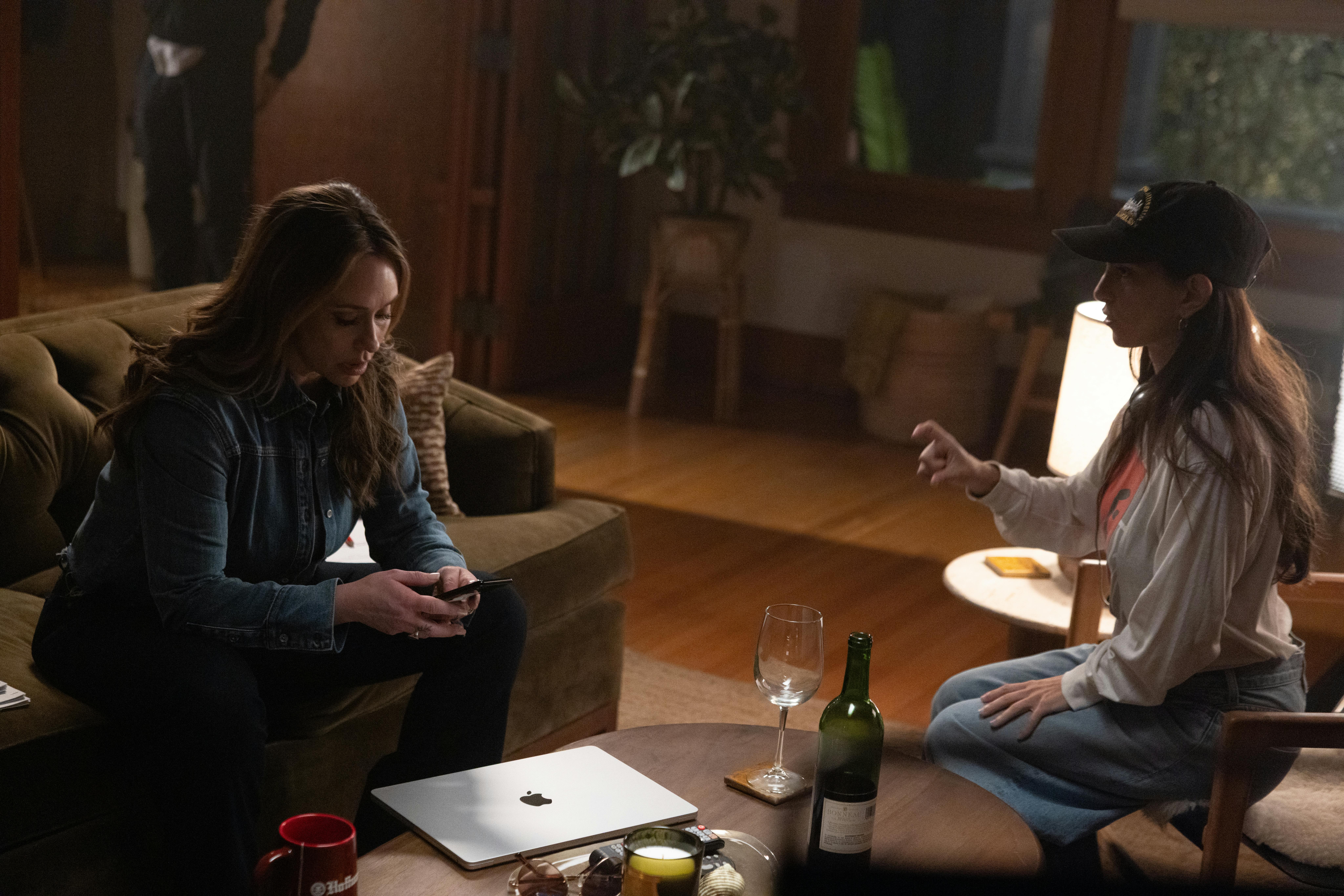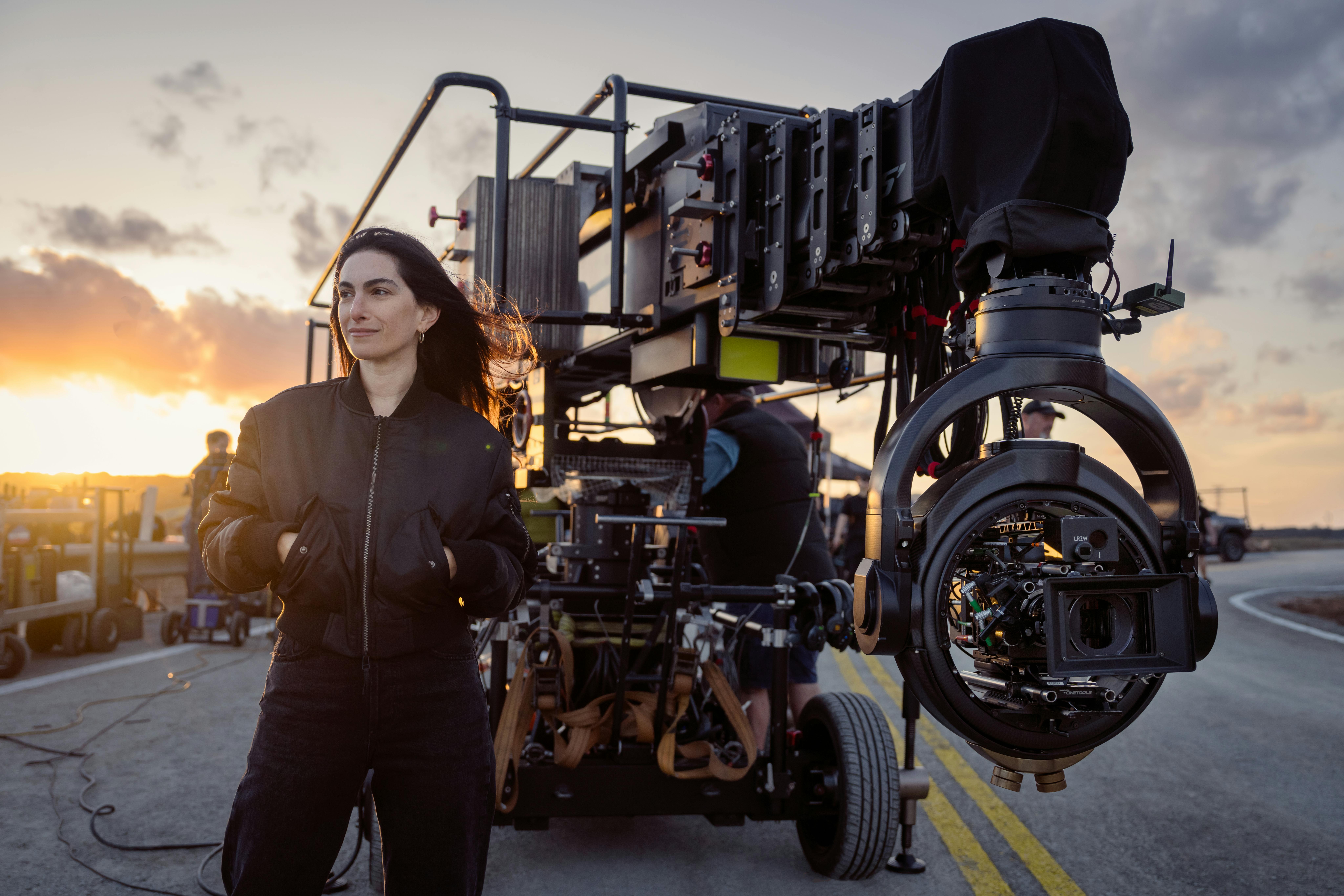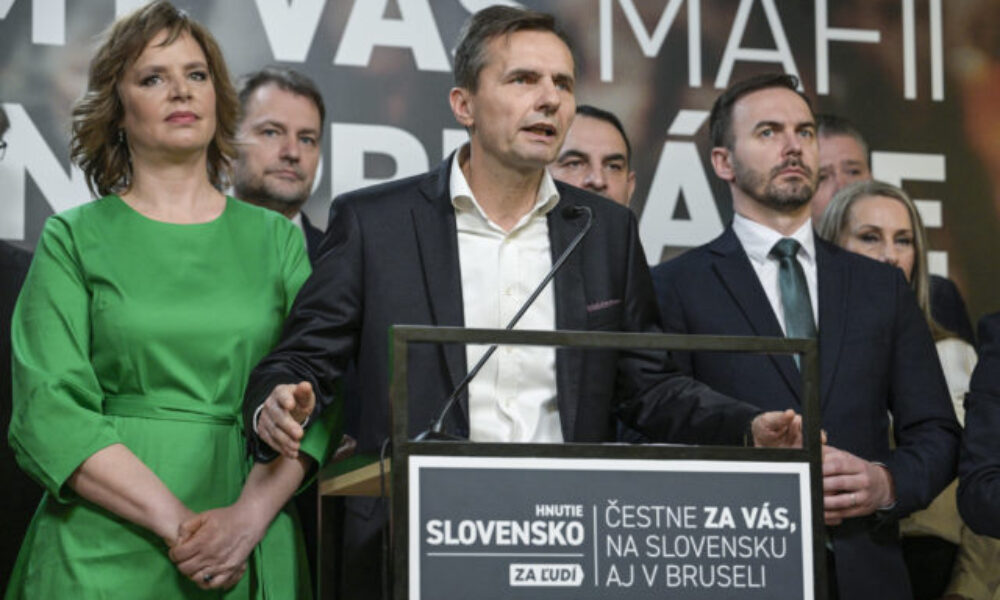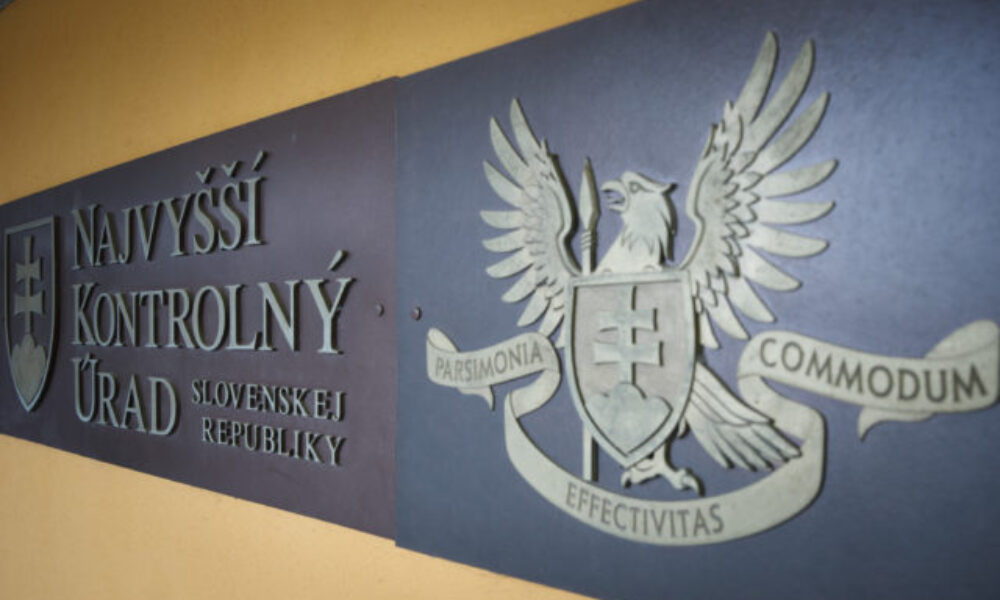Jennifer Kaytin Robinson grew up loving film. The writer and director, now 37, watched Singing in the Rain more than 100 times at her maternal grandmother’s house, which was also the first place she remembers letting her imagination run wild. “We would sit in her shower and pretend it was a time portal,” says Robinson. “My grandmother would say, You could go anywhere. Where do you want to go? She and my mother always made me feel like my crazy dreams were possible.”
With her family’s encouragement, Robinson followed her creative calling to Hollywood. She initially wanted to be an actor but quickly changed her mind. “I realized I didn’t care about saying what was on the page,” she recalls. “I wanted to write what was on the page.” At 26, she sold her first series, a dark comedy about vigilante college students called Sweet/Vicious, to MTV. After its 2016 premiere, she decided that she also wanted to direct; in 2019, she made her feature directorial debut with Someone Great, a Netflix rom-com inspired by her real-life breakup.
Her next original project, the dark comedy Do Revenge, hit the streamer in 2022 (that same year, she co-wrote the screenplay for Marvel Studios’ superhero flick Thor: Love and Thunder, with director Taika Waititi). A nod to 1990s teen films, Do Revenge was rife with references to Clueless, Cruel Intentions, and Heathers. “For me, ‘90s cinema is such a sweet spot,” says Robinson. “Those are the movies that shaped me as a filmmaker.” So, when Sony asked her to write and direct a legacy sequel to the beloved 1997 slasher I Know What You Did Last Summer, it was “an immediate yes.”
With a cast led by Outer Banks star Madelyn Cline and The Studio’s Chase Sui Wonders, the 2025 popcorn flick is decidedly not a remake. “I wanted to continue the original story and do an updated version of what I called ‘the original sin,’ but I was never interested in doing a reboot,” says Robinson, who tapped Jennifer Love Hewitt and Freddie Prinze Jr. to reprise their roles as Julie James and Ray Bronson, the two surviving main characters from the original film. The result is a perfectly nostalgic yet spine-chilling multi-generational romp. “The movie definitely has an emotional core, but mostly, I just want people to walk away feeling like they had so much fun,” she says, proud of the final product. “When I watch it, I’m like, Oh, I made a movie for the fucking big screen.”
Robinson hopes to bring more of her own original scripts to theaters in the future. As she looks ahead, she keeps the past close by displaying cherished reminders of her earliest champion throughout her home. “My grandmother bought beautiful perfume bottles from antique shops all over the world, and when she passed away a few years ago, I got her collection,” says Robinson. “She kept them in the bathroom, lining the tub where we’d sit, so they’re very present in my memories. Now, they’re scattered around my house so that she’s in every room—and every time I look at them, I think about the little-girl version of me who realized the true potential of her imagination.”
In the conversation below, Robinson opens up to L’OFFICIEL about her nostalgia-fueled latest project. Warning: spoilers ahead for I Know What You Did Last Summer, now in theaters.
L’OFFICIEL: When you were first envisioning your version of I Know What You Did Last Summer, what was most important to you?
JENNIFER KAYTIN ROBINSON: I knew that I wanted there to be an accident, and I wanted there to be fallout from that accident. And I knew that I wanted Freddie and Jen. It was important to me to continue those Julie and Ray stories, because I do think that bringing those characters back is what sets this apart and makes it interesting. For me, it’s kind of base level: What happened to them? If you really strip away the fun and the popcorn element of the movie and the big entertainment factor, it is super interesting to be like, Okay, in their late teens and early 20s, these people were terrorized. We have not seen them for 27 years; where did they end up? That was the thing that I found most interesting to explore in this movie.
L’O: Why was it important for you to make this a sequel, as opposed to a full-on reboot?
JKR: My first two movies were original movies, so I do feel like, as a filmmaker, that’s what I lean towards most of the time. Mostly, I just wasn’t interested in doing that kind of story, and I don’t think Sony was either. There are a lot of franchises that lean into and do really well in that kind of reboot world. I think Twisters [2024] was fantastic. I loved it, and I thought it was perfect. You don’t need the OG characters in that, because the tornado is the star. But there’s always going to be reboot fatigue and people saying that there are no original ideas—and I hear that, and I understand that.
L’O: In one brief scene, Sarah Michelle Gellar reprises her role as Helen Shivers, the beauty pageant queen who was murdered in the 1997 film. How did you approach writing that cameo into the sequel?
JKR: Sarah’s one of my closest friends. I will admit that I was initially like, Okay, I know you’re dead…but what if you survived? And she was just like, No. I am dead on ice, in an ice bucket. I’m not alive. I told her to give me a minute, and then my co-writer, Sam Lansky, and I came up with this dream sequence idea for her, and I sent her the pages and she immediately said yes. I really loved being able to bring her together with the 2025 [version of] Helen Shivers, [Danica Richards, played by Cline]. It was so iconic to shoot her and Maddie in that scene together.
L’O: There’s also a post-credits scene, in which Brandy Norwood returns as Karla Wilson, the college roommate of Julie James in the 1998 follow-up, I Still Know What You Did Last Summer. Was that meant to set the stage for another potential sequel?
JKR: 100 percent, if Sony wants more and they want me to do it. There were different endings that we played with, but this felt like the best way to set things up. I mean, this is a movie where all the men die and all the women live, including the villain. So, we’re setting up a very fun sequel that, hopefully, audiences want.
L’O: Is there a message that you hope audiences take away from the movie?
JKR: I think the theme of the film is to deal with your trauma or your trauma deals with you. Accountability is also a big theme. But mostly, I want people to walk away being like, God, I want to see that again. It’s meant to be a big summer slasher, and that is what I want people to take away from it.
L’O: It feels like we need a bit of fun these days. Do you think our current culture is just ripe for nostalgia?
JKR: There’s definitely a comfort in familiarity, and I think we all kind of wish that it was the ‘90s again. Being in a movie theater in July, watching I Know What You Did Last Summer gives you a sense of coziness, even as you’re watching a slasher movie that’s scaring you. There’s just a warm fuzzy feeling around seeing something that feels like it was not made today, and that was a big part of how I designed the film. I didn’t want it to feel like a throwback, but I also didn’t want it to not feel modern. I wanted it to feel like it lives in its own world and has its own place in time, so that you wouldn’t necessarily think, Oh, this was made in 2025.
L’O: Is there something about it that you hope surprises people?
JKR: We took a big swing with the killer. I think that that’s probably going to be the most shocking thing that we did that I did, but that was kind of my pitch to Sony from jump street. I knew that I wanted it to be him [Ray] from the beginning. I was like, If you guys don’t want to let me do this, I totally understand—but this is the version of the movie that I’m interested in, and this is what I want to do. And they said, We love it. Go for it. So I brought it to Freddie, and he was in, and then we were off to the races. I also said that I wanted to kill almost everybody, which I did.
L’O: What was the vibe like on set?
JKR: This wasn’t a very big budget movie, so we only had 36 days to shoot in Australia and another 10 days in L.A. It was not a very long shoot, but it was really fun. The cast really loved each other and bonded. In Australia, we really just had each other. My co-writer Sam Lansky and I lived in a house together, and the actors all lived in the same apartment building. So we would all just hang out. It was important to me that it was a very light and fun set—I didn’t want anybody to take that shit home with them, because it can get dark when you’re spending the day screaming and being murdered and looking at dead bodies.
L’O: How would you describe yourself as a director?
JKR: That’s hard. I would say that I hope people feel like I am exacting. I have high standards, and I push people to achieve at the highest level that they can achieve. I always have a very clear vision, but my job is to not let my clear vision stand in the way of collaboration. The thing that I am most proud of as a director is knowing what I want something to be, but giving all of my collaborators—department heads, actors, co-writers—the space to feel like we are making something together. It’s not like we are all just executing my one thing or that there is no movement within that.
L’O: I could see where that might be difficult with a project that you’re not only directing, but also wrote.
JKR: Yeah, but film is such a collaborative medium. You cannot do it alone. I also really do welcome and want everyone to feel like they have a hand in creating the thing that we are all making together. I will spend hours with each actor to individually go through each scene and talk about it; then we’ll redevelop the character and I will do a rewrite. On I Know What You Did Last Summer, we did that in pairs. It wasn’t just about each actor, because the chemistry was so important. Sam and I would sit with different pairs to talk about their story arcs, and I sat with the five of them, too. We were coming at it from all directions so that it felt real and true to what they wanted to perform, in addition to the story that I wanted to tell as a writer and director.
L’O: What kind of stories do you want to continue to tell?
JKR: I would love to use this to level up and go back to making original films, but on a larger stage. My first two movies were made for Netflix, and I love those movies, but the stories that I’m the most interested in telling—like Someone Great and Do Revenge—are harder to get made theatrically if you don’t have the juice behind you. I’m hoping this gives me the juice to continue telling original stories—but on a larger stage, theatrically.
L’O: Do you read reviews of your films?
JKR: Yes. I’m on Twitter all the time, searching the hashtag. So, just so everybody knows, every mean thing that is said about this movie, I will personally read it and hold it in my heart forever. There’s this parasocial thing with movies and filmmakers on social media—at no time before could you go on the internet and know what everybody in the world thinks of your thing. Like, Steven Spielberg didn’t deal with that. He just put a movie out, and reviewers liked it or not. Maybe he was sitting at dinner and someone next to him was talking about his movie, but that was it. Meanwhile, I have people in my DMs being like, I’m gonna kill you for doing XYZ. It’s like, Okay, thank you.
L’O: Are you critical of your own work?
JKR: I’m very, very critical of myself and my work. I feel an intense need and want to make things better, all the time, forever. It’s just hard to watch something and remove yourself from it; you can’t really watch something as an audience member when all you can see are the things that you would have changed or done differently. But I’m very proud of this movie. I’m going to invoke Harry Styles [when he was promoting Don’t Worry Darling in 2022] right now: It feels like a movie. It’s a go-to-the-theaters movie. And that’s so cool.

